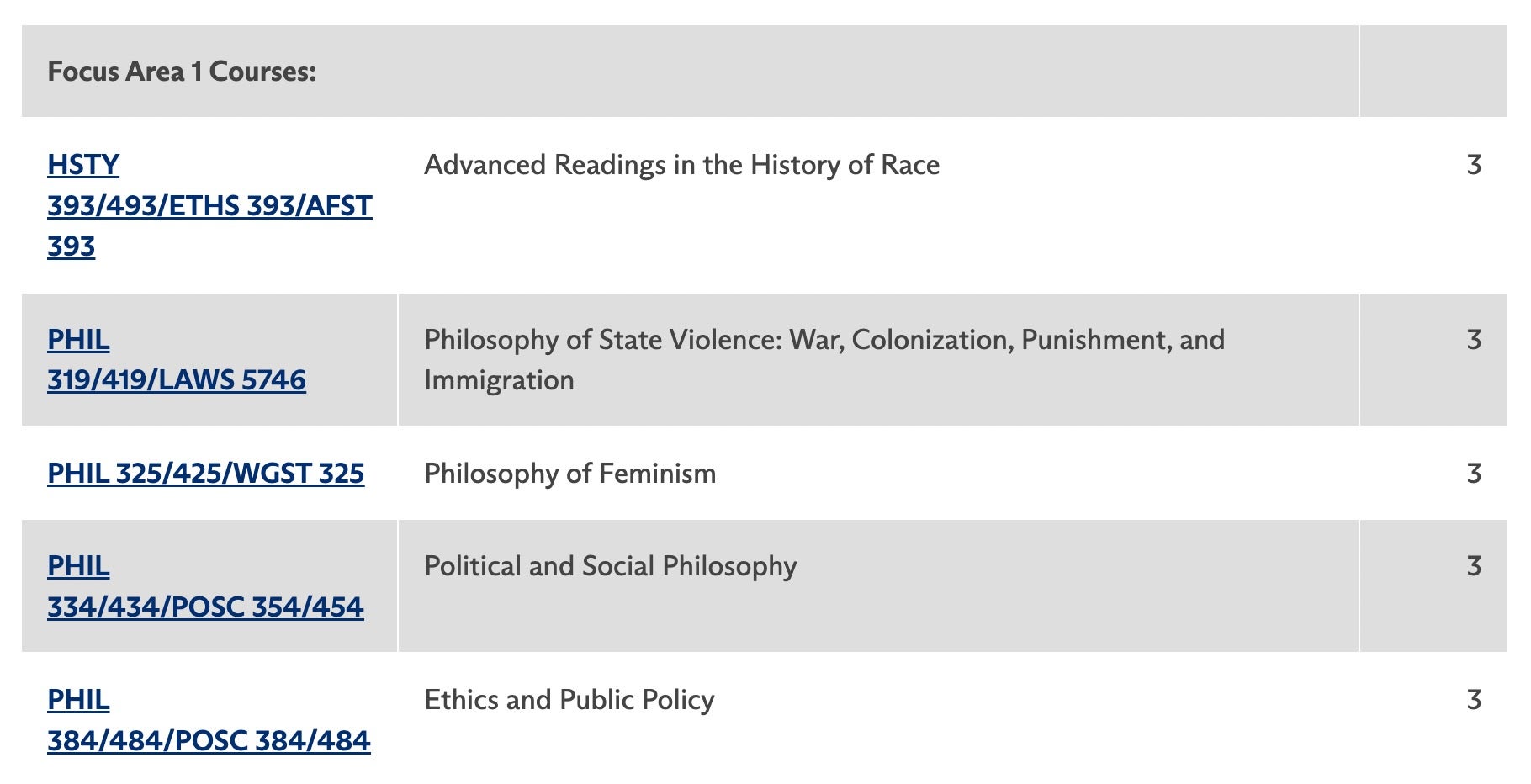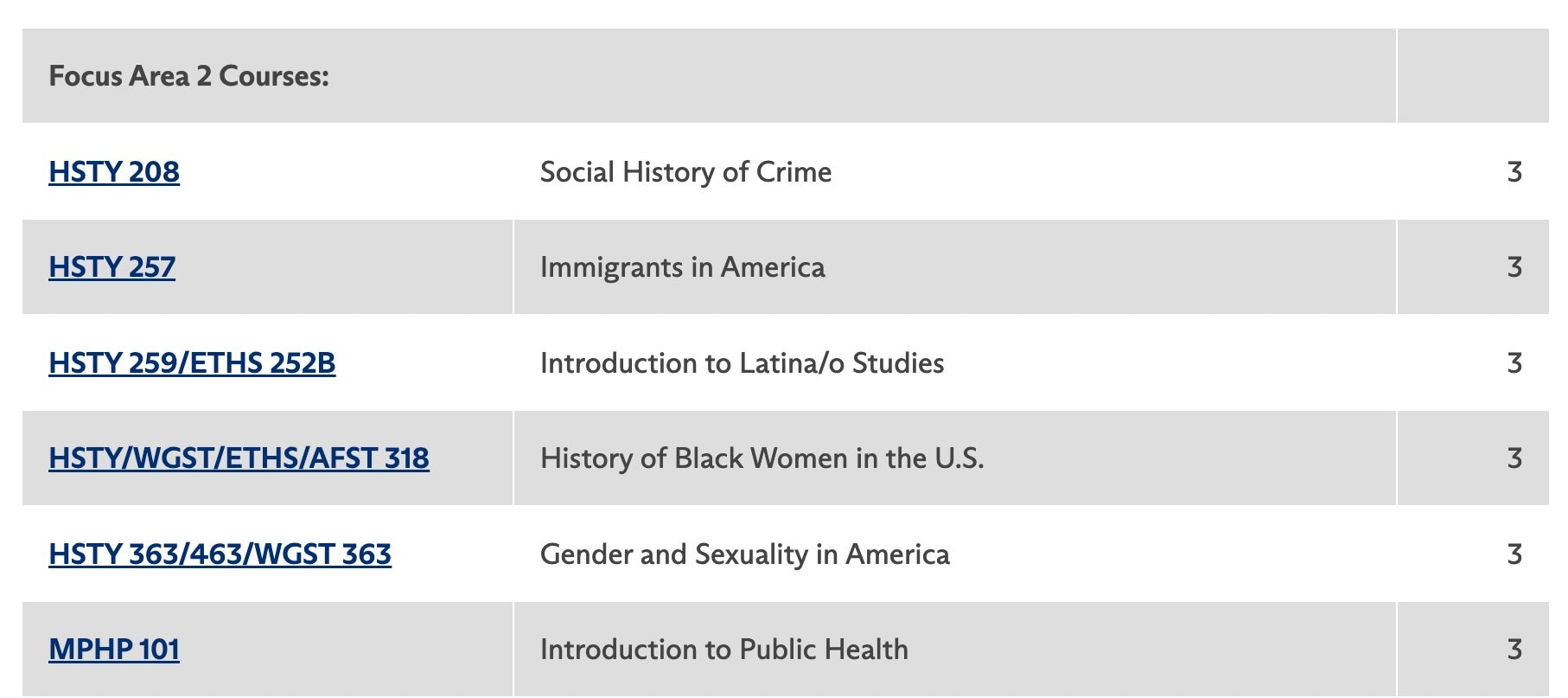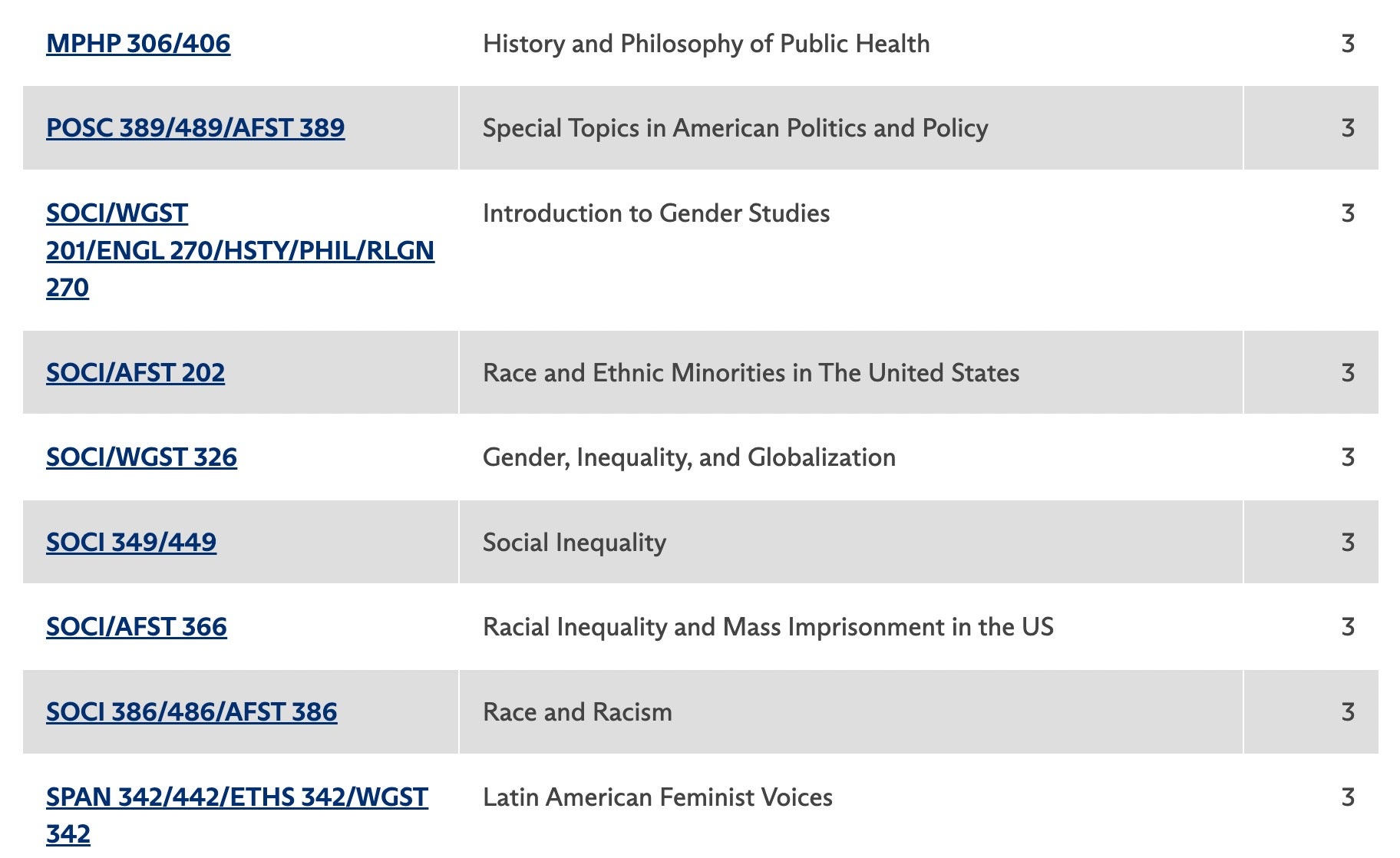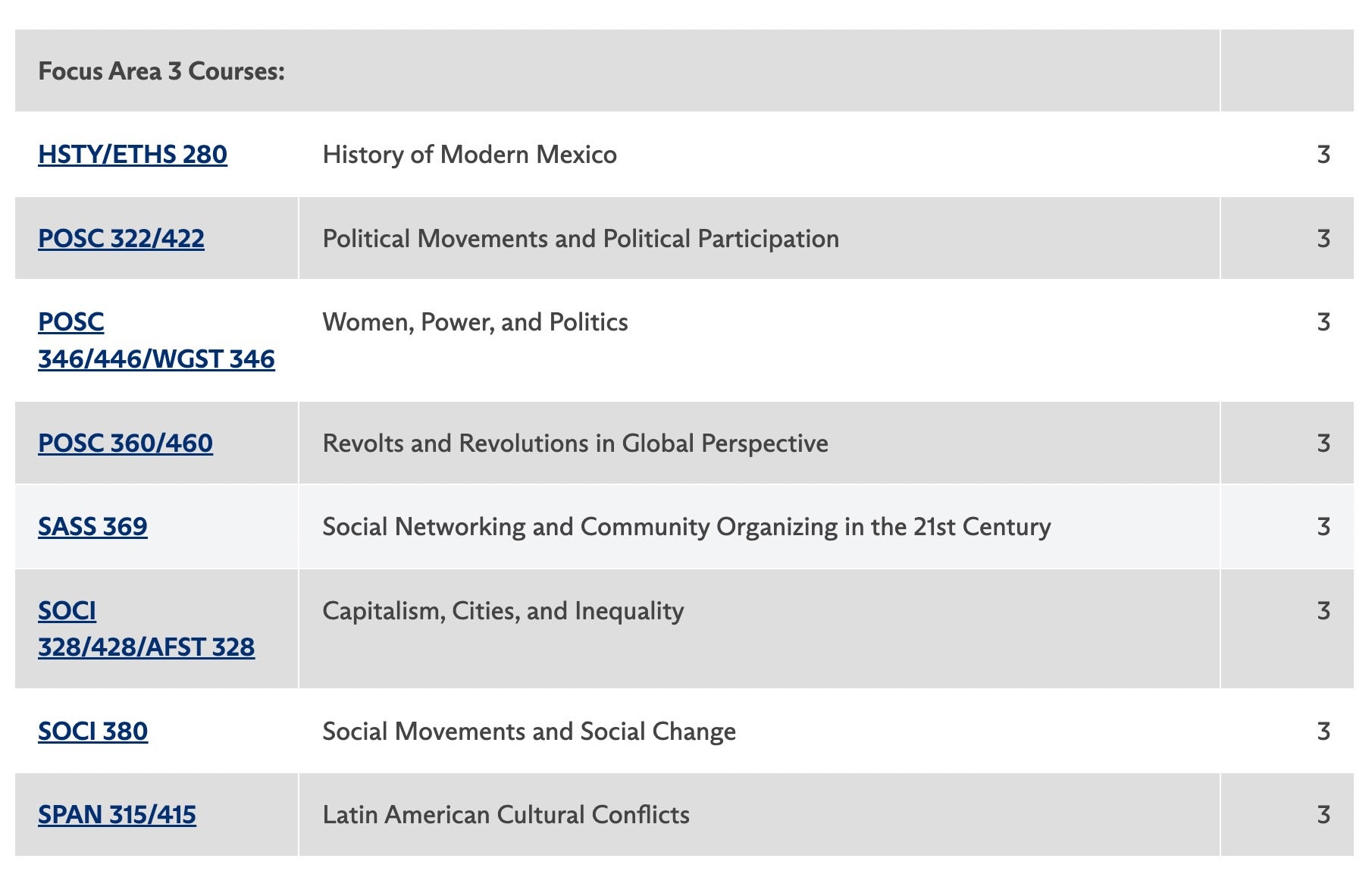The Social Justice Institute weaves together the richly diverse contributions of scholars from varying disciplines and schools to inspire the next generation of informed, critically-thinking promoters of social justice.
SJUS 100: Introduction to Social Justice
Concepts and quests for justice, and struggles against injustice, have shaped human understanding and community relationships for centuries. Probing broad questions, our signature course, Social Justice 100, encourages students to think critically and expansively about the social world and the conditions of humanity. The course provides a foundational exploration of social justice concepts, issues and remedies, thereby developing the necessary analytical tools and information to assess inequality and address issues. Various instructors from our dynamic leadership team teach the class, which focuses on a interdisciplinary method of thinking and in-depth case studies.
SJUS 100 is offered most semesters depending on the number of minors and interest. Our Fall 2025 instructor is Social Justice Institute Postdoctoral Scholar, Alireza Nourani-Dargiri.
SJUS 100 is offered most semesters on Tuesdays and Thursdays from 11:30am-12:45pm. Search SJUS 100 in SIS during registration periods!
Minor in Social Justice
To better prepare today's students for the range of opportunities to make a difference in their communities and in the world, the Institute offers an interdisciplinary undergraduate minor in social justice that is open to students from all participating schools.
The Social Justice Minor prepares students across the university to address local, national and global inequities. The curriculum emphasizes history, theory and practice of social justice work; the distribution of power, resources and opportunities; and appropriate individual and collective remedies for social justice. The minor is a total of 15 credits, including the required core course, SJUS 100 (see above).
Ready to declare a Minor in Social Justice? Fill out the Minor Declaration Change Form and contact the SJI Administrator at socialjustice@case.edu to have it signed. Then, take it to your navigator to have it submitted.
In addition to Introduction to Social Justice, students must also take one course from each Focus Area listed below, plus one additional course from any Focus Area. These classes come from multiple departments and address crucial issues in diverse voices. This interdisciplinary approach is a crucial component of the Social Justice Minor. Students may also petition for relevant SAGES seminars to be approved as an elective for the minor; a petition form must be completed for each course. If the course is approved, students must submit the Academic Advisement Report with appropriate signatures to the Office of Undergraduate Studies.
Academic departments: have a course you'd like considered for inclusion as an elective for the Social Justice Minor? Complete this form to tell us why you think your course would be a good fit!
Please note: not all courses are offered every semester and additional courses continue to be added to the approved list.
The courses listed below are accepted toward the minor. Approved electives are added every year; students may request that relevant SAGES seminars be applied for elective credit. Please find the full list of approved courses with course descriptions on the Social Justice Minor 25-26 General Bulletin Page.
Focus Area 1: Ethics, Politics and Economics
Are existing arrangements just? To what extent are current thought systems amenable to change? What are the preferred alternatives and how can they be realized?
Focus Area 2: Social Inequality, Power and Privilege
What is a fair distribution of resources? How do cultural practices, social relations, social structures and institutions reproduce, reduce or eliminate inequalities? What are the consequences of social inequality for the health, development and well-being of individuals and communities? How are distributions and uses of power connected to social inequalities?
Focus Area 3: Social Movements and Social Change
What are competing models of social change? What role have social movements played in U.S. and global history? How do social movements form? How have states responded to social movements? What is the relationship between democracy and social movements? How have different technological innovations advanced or impeded social movements? What knowledge and skills are necessary to implement social change?
To learn more about the Social Justice Minor or to meet with an SJI Advisor, contact the Social Justice Institute office at 216.368.7568 or socialjustice@case.edu.
Visit our departmental partners to learn more about the courses, instructors and curricula:






